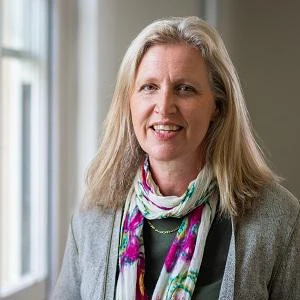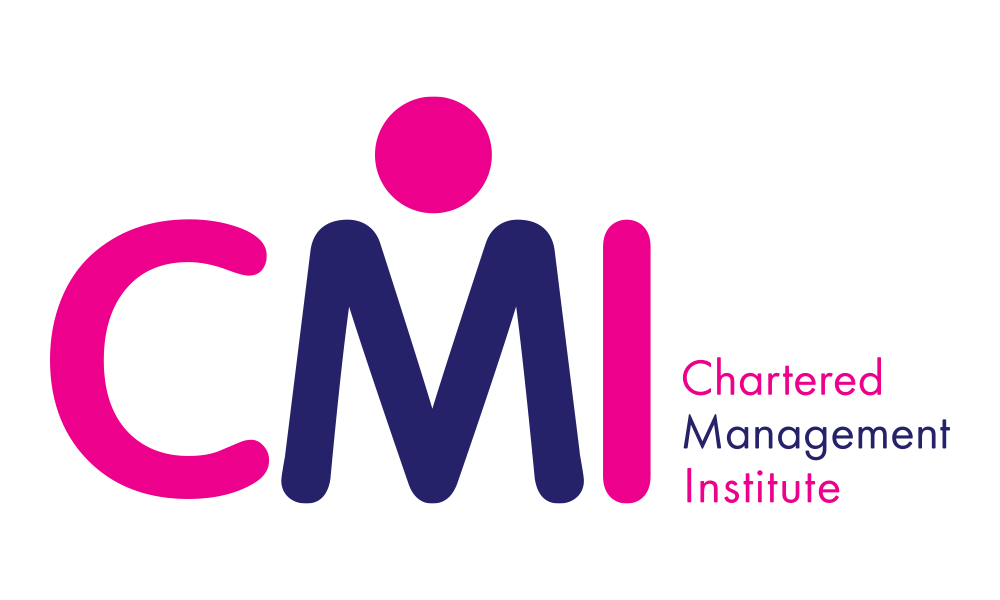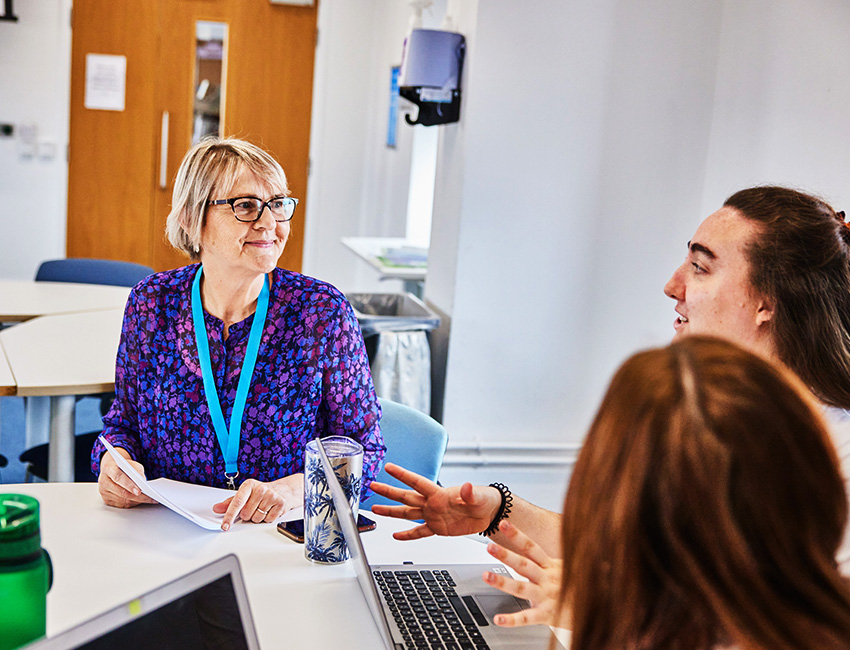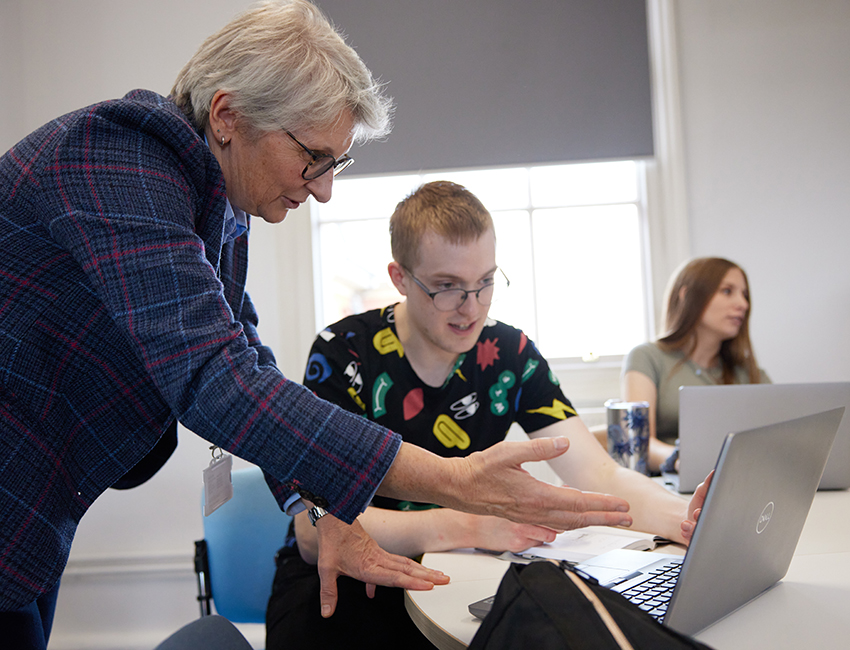Gain real-world experience and expand your professional network through an optional paid year-long internship, helping you build confidence, sharpen your skills and stand out in a competitive job market.
in the UK for graduate prospects
of students said staff are good at explaining things
Accreditation
This course has been mapped for dual accreditation with the Chartered Management Institute (CMI). You will be awarded a CMI Level 5 Certificate in Management and Leadership, in addition to your degree, upon the successful completion of the entire degree.
During your studies, you will also benefit from associate membership to the CMI (at no extra cost), inclusive of an interactive induction session hosted by the CMI, as well as access to the CMI's digital library, resources, and employability skills audit.
Overview
In today’s digitally driven world, marketing professionals need more than creativity - you need strategic insight, technical fluency, and a deep understanding of customer behaviour. Our Digital Marketing course is designed to equip you with the skills and confidence to thrive in this fast-evolving industry.
You’ll build a strong foundation in digital marketing through a diverse range of modules that develop your subject knowledge and digital expertise. You’ll explore a wide range of contemporary digital topics, including e-commerce, digital content systems, social media advertising, digital marketing communications, and ethical and responsible use of artificial intelligence. These modules will give you the opportunity to explore current industry trends and challenges.
Throughout your studies, you’ll benefit from the guidance of experienced academic staff, industry experts, and our partnership with the Chartered Management Institute (CMI).
Placements
Throughout your studies, you’ll have multiple opportunities to gain hands-on experience and build a strong foundation for your future career in digital marketing. Whether you choose to apply for short-term work experience opportunities, or a year-long paid placement, you’ll be able to explore different career paths, develop your professional network, and enhance your CV.
Our dedicated placements team provides personalised support to help you find the right opportunity, offering guidance on applications, interview preparation, and connecting you with employers. You can choose to stay local and benefit from strong regional business links, or broaden your horizons by gaining experience in another city or even overseas.
As you progress through the course, you’ll build a digital work portfolio that showcases your creativity, customer focus, and commercial awareness, so you feel prepared to work in the industry.
Course content
Each year you will study a mix of mandatory and optional modules. In your first year, you'll develop a solid grounding in key areas such as business management, customer insight, marketing, and financial management. As you move into your second and third years, you'll have the flexibility to tailor your studies to suit your personal interests and career goals by choosing from a broad selection of optional modules.
We regularly review our courses to reflect the latest research and developments in the subject area, as well as feedback from students, employers and the wider sector. As a result, modules may change to ensure the course remains current and relevant. Optional modules will run if enough students choose to study them. It is not guaranteed that all modules will be offered every year.
Optional modules
Careers
Our course equips you with the skills to thrive in the digital marketing industry, whether you're aiming to work on the client side, within an agency or in a larger corporate organisation seeking talent to drive digital transformation.
This degree could be the first step toward your career as a:
- Advertising account executive
- Market researcher
- Social Media manager
- Digital Marketing executive
- Media buyer/ planner
- Public affairs consultant
- PR executive
- Sales promotion officer
Other options
You could choose to progress onto a postgraduate degree to take your learning even further. For example our Master of Business Administration (MBA), Marketing MSc (with 12 month placement) or International Business and Management Studies MRes.
You could also train to teach with a one-year Primary or Secondary PGCE at Worcester.
Course highlights
Teaching and assessment
Our course has been designed by academics and industry specialists to prepare you for a marketing career. You’ll be taught through a combination of practical activities, seminars, lectures and one-to-one tutoring.
Our highly practical assessment methods include presentations, portfolios and consultancy projects - preparing you for the work you’ll be doing when you graduate.
Teaching and assessment contents
You’ll learn through a mix of interactive workshops, seminars, lectures, and practical sessions designed to develop your skills in key areas of digital marketing. Workshops and seminars encourage discussion, collaboration, and hands-on project work, while modules across all levels focus on the latest digital tools, platforms, and industry trends. You’ll also benefit from guest speakers, personal academic tutoring, and the option of a year-long placement in your third year. With strong support from academic and student services, you’ll build a portfolio of skills and experiences to prepare you for future success. Ethical and sustainable business practices are embedded throughout, encouraging you to think critically about your impact in a changing world.
Entry requirements
UCAS tariff points required: 112
| Qualification | Grade |
|---|---|
| A-level | BBC |
| BTEC National Extended Diploma | DMM |
| T-level | Merit |
We do accept Access to HE Diplomas and other qualifications which may not exactly match the combinations above. Work out your estimated points with the UCAS tariff calculator.
Any questions?
If you have any questions about entry requirements, please call our Admissions Office on 01905 855111 or email admissions@worc.ac.uk.
Fees
Fees contents
UK and EU students
In 2026/27 the standard fee for full-time home and EU undergraduate students on BA/BSc/LLB degrees and FdA/FdSc degrees is £9,535 per year (subject to changes in the government tuition fee cap).
Tuition fees are reviewed annually and may increase each year for both new and continuing students.
For more details on course fees, please visit our course fees page.
International students
In 2026/27 the standard tuition fee for full-time international students enrolling on BA/BSc/LLB degrees and FdA/FdSc degrees is £17,200 per year.
Tuition fees are reviewed annually and may increase each year for both new and continuing students.
For more details on course fees, please visit our course fees page.
How to apply
How to apply contents
Applying through UCAS
UCAS is the central organisation through which applications are processed for full-time undergraduate courses in the UK.
Read our how to apply pages for more information on the application process, or if you’d like to apply for part-time study.
Contact
If you have any questions, please get in touch. We're here to help you every step of the way.

Admissions Office
admissions@worc.ac.uk01905 855111More to explore
Open Days
Visiting us is the best way to get a feel for student life at the University of Worcester.

The City of Worcester
Worcester is a welcoming university city with great transport links and plenty of student parking.

Accommodation
Benefit from our accommodation guarantee. We have rooms on campus to suit every budget including en-suite options.









